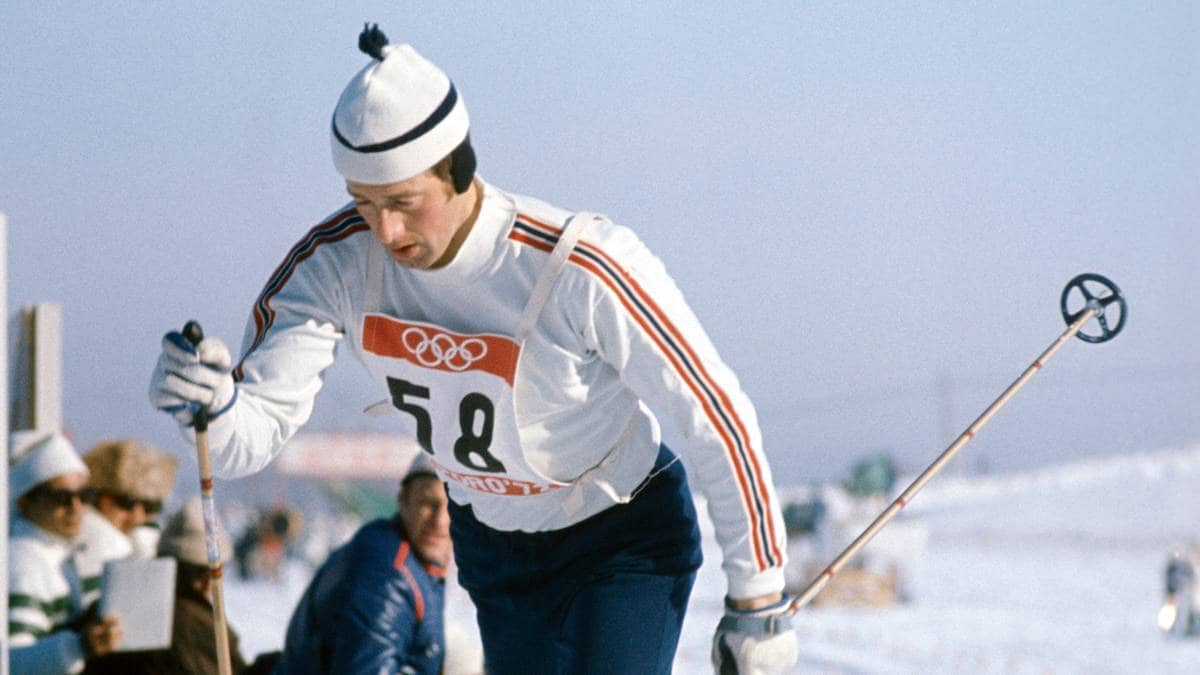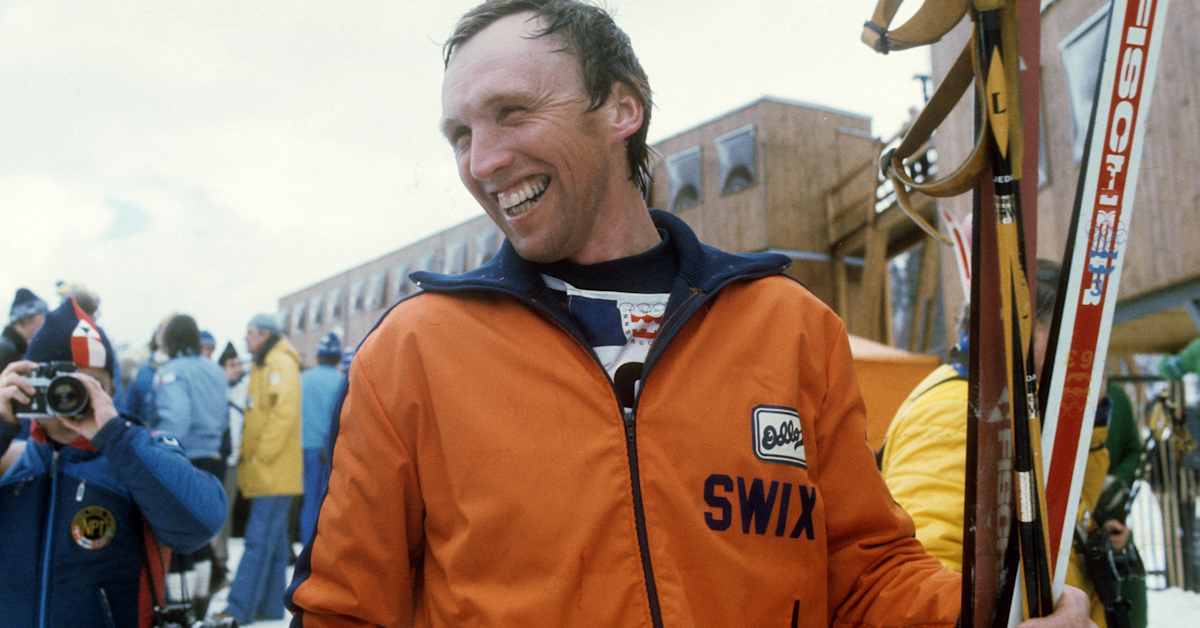
Former cross-country skier Magne Myrmo has died: the last world champion on wooden skis
Originally published in NRK on November 19, 2025
The former Norwegian cross-country skier has died, his family confirmed to NRK. He was 82 years old.
“He was a legendary skier, because he is the last world champion on wooden skis. At the 1974 World Championships in Falun, during the fiberglass-ski revolution, he kept his cool and raced the 15 km on Norwegian wooden skis. He was a calm, steady character and technically very skilled,” explained NRK cross-country expert Torgeir Bjørn.
He continued: “He was one of Norway’s and the world’s best skiers for years. Strong across all distances, and he took silver in the 50 km at the 1972 Olympics.”
In a 2021 interview with VG, Myrmo was open about living with Alzheimer’s disease, which he was diagnosed with in 2014.
Myrmo reached the pinnacle of his career on a piercingly cold day at the 1974 World Championships in Falun. The championship came at the height of the turmoil in the ski world. Several major Central European manufacturers had developed fiberglass skis that were said to glide better than wooden skis, and many top athletes had started using them.
The problem for the Norwegians was that the national federation had contracts with Norwegian ski factories, which had not yet begun producing fiberglass skis. The debate was intense. “We will use whichever skis are best,” was the common refrain on the Norwegian team — and several did so despite the factory agreements.
In the 30 km, the new “plastic skis” proved superior as Sweden’s Thomas Magnusson won in warm, wet conditions. But the 15 km was held in sparkling winter weather at −7 to −8°C, and Magne Myrmo clung to his wooden skis.
“I’ve never raced on anything else, so I won’t today either,” he said before the start — unwilling to experiment at a World Championships.
Starting early, Myrmo was still seconds behind Vasily Rotchev and Gerhard Grimmer a couple of kilometers from the finish. He closed ferociously and won the time duel against both. Grimmer, on his new fiberglass skis, fell on a descent just before the finish and lost by 0.91 seconds; Rotchev finished a further 0.6 seconds back. Only 1.5 seconds separated the podium.
“Perhaps I won’t be forgotten as quickly as some of the others, since I became the last world champion on wooden skis,” he told Aftenposten in 2003.
The feat earned him Norway’s Sports Name of the Year and the Olav statuette; one of his gold-winning skis is displayed at the Holmenkollen Ski Museum. After Falun, fiberglass became universal — Norwegian factories also pivoted to produce them.
Background and rise
Magne Gunnbjørn Myrmo grew up in Rennebu, where his father and older brother excelled in Nordic combined. He also started in Nordic combined, but it quickly became clear his strength was in cross-country skiing.
He broke through by winning Norwegian junior titles in 1962 and 1963. As a senior his progress was steady: eighth in the 50 km at the 1966 Norwegian Championships and selected to the B-team the next season. Internationally, his first major podium came in 1969, winning the 30 km at the Svenska Skidspelen, followed by victory in the 15 km at Holmenkollen in 1970. He debuted at the 1970 Worlds in Vysoké Tatry with seventh in the 30 km.
Close to Olympic gold
In the early 1970s Myrmo was among the most consistent performers, piling up podiums and top results. Before the 1972 Sapporo Olympics he was a favorite. Heavy snowfall just before his 30 km start ruined his wax and he finished 21st. He rebounded in the 50 km, pacing conservatively early and storming to silver, only 14.7 seconds behind Pål Tyldum. He also received the Holmenkollen Medal that year after another Holmenkollen 15 km win.
At the Norwegian Championships he often found it difficult to win outright; his national golds were the 50 km in 1971 and the 15 km in 1972, alongside many silver and bronze medals.
Falun 1974 and later career
Myrmo was not the favorite for Falun 1974 — rising stars Ivar Formo and Oddvar Brå were the Norwegian headliners and finished fifth and sixth (on fiberglass). “That was good; I could prepare in peace,” Myrmo said. A few days after his 15 km gold he led off Norway’s relay team that won bronze. He then captured the Holmenkollen 50 km, his penultimate international triumph, and won the Svenska Skidspelen 30 km again in 1978. He also competed at the 1976 Olympics (hampered by throat infection) and the 1978 Worlds without success.
Waxing and coaching
After retiring, Myrmo and Idar Dahl coached Norway’s women’s national team for two years. He later worked as a ski technician for Landsem and Madshus and then as a full-time wax technician for Norway’s national team during its successful 1990s era. From 1999 to 2007 he served as head wax technician for Estonia.
Myrmo’s legacy endures as the last world champion to win on wooden skis, a symbol of a pivotal transition in cross-country skiing history.
See Also
Winter Sports: A Year Ago, a German Legend Died
October 08, 2024 / Sport1
A forgotten legend of German winter sports
October 09, 2025 / SPORT1
